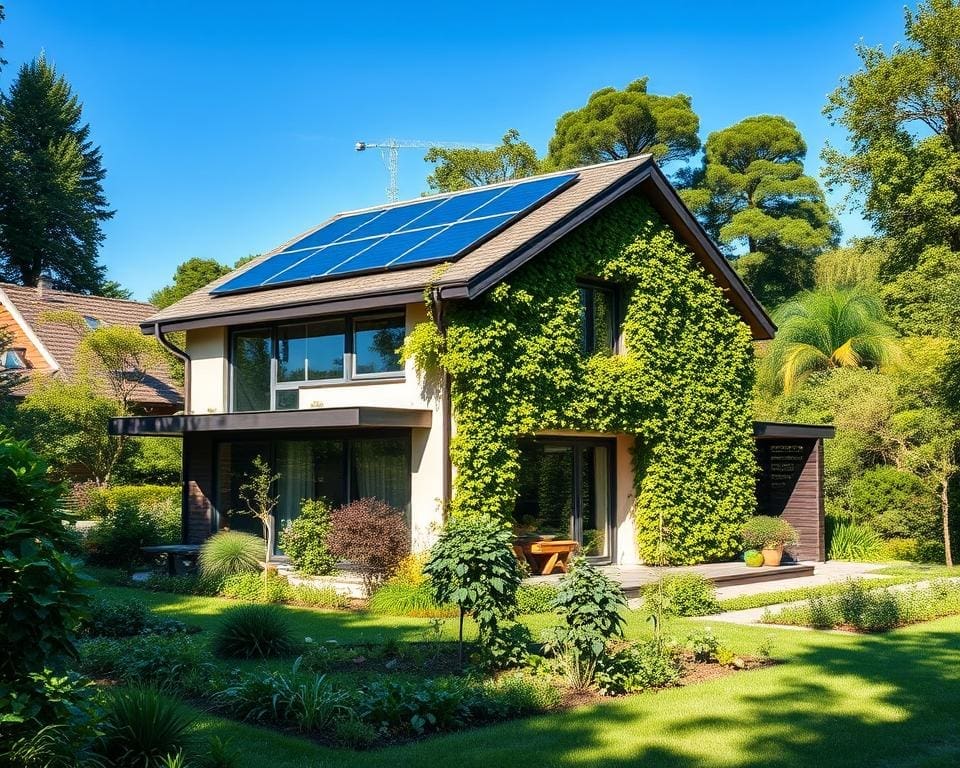As we look ahead to 2024, the landscape of the construction industry is undergoing profound transformations. The key trends in residential construction for 2024 reflect an increasing emphasis on sustainability and technological innovation. With a growing awareness of environmental impact, builders are prioritising energy efficiency and the use of green materials, shaping the future of home construction. Reports from organisations such as the Royal Institute of British Architects and the Construction Products Association highlight how these construction industry developments are driven by both regulatory pressures and evolving consumer preferences. The adaptation to these changes not only enhances the efficiency of the construction process but also aims to achieve higher levels of profitability.
Sustainable Housing Trends in 2024
As the world increasingly prioritises environmental responsibility, sustainable housing trends are gaining traction in 2024. A focus on energy efficiency in home design enhances the overall living experience, reduces energy costs, and contributes to a more sustainable future. Designers and builders are innovating to create homes that not only meet but exceed current standards, creating spaces that are environmentally friendly and cost-effective.
Energy Efficiency in Home Design
Energy efficiency in home design has become a cornerstone of sustainable housing trends. Techniques such as passive solar design exploit natural sunlight, while advanced insulation materials ensure homes retain heat effectively. Innovations in ventilation systems also support thermal efficiency, making homes more comfortable throughout the year.
Green Building Materials
The use of green building materials plays a vital role in fostering sustainable housing. Eco-conscious builders are turning to reclaimed wood, recycled metal, and sustainable concrete. Brands like Kingspan and EcoBean are leading the way with their commitment to quality and environmental sustainability. These materials not only reduce the carbon footprint of construction but also offer durability and aesthetic appeal.
The Role of Renewable Energy Sources
Renewable energy sources are transforming the landscape of residential construction. Integrating solar panels and heat pumps into home designs significantly lowers energy costs and enhances self-sufficiency. This shift not only meets homeowners’ energy needs but aligns with the UK’s carbon reduction targets, demonstrating a collective move towards a sustainable future.

Key Trends in Residential Construction for 2024
The residential construction sector is evolving rapidly, driven by advances in technology and changing consumer demands. As we look towards 2024, several significant trends are taking shape, showcasing innovative building techniques, the impact of digital transformation in construction, and the rise of residential smart technologies.
Innovative Building Techniques
Emerging methods such as modular construction and 3D printing are redefining the landscape of residential building. Companies like Lendlease and Skanska exemplify the adoption of innovative building techniques that enhance efficiency while reducing costs. Prefabrication plays a crucial role in speeding up the construction timeline and minimising waste, aligning well with the growing focus on sustainability.
Digital Transformation in Construction
The digital transformation in construction is paramount in streamlining processes. Technologies such as Building Information Modelling (BIM) and advanced project management software promote collaboration and increase visibility throughout the project lifecycle. These tools not only improve communication among stakeholders but also contribute to better decision-making, efficiency, and effectiveness of resources in real-time.
Residential Smart Technologies
With the increasing demand for sustainability and convenience, residential smart technologies have become integral to modern living. Brands like Nest and Philips Hue are leading the way in integrating smart home systems that enhance security and energy efficiency. These systems allow homeowners to monitor and control their homes remotely, significantly impacting the way we interact with our living spaces.
Emerging Construction Technologies Impacting the Future
The construction industry is on the brink of a transformation, driven by emerging construction technologies that promise to redefine the residential sector. With the integration of artificial intelligence and machine learning, construction firms are enhancing project management through predictive analytics. This allows for more accurate forecasting of project timelines and costs, ultimately leading to improved efficiency and reduced waste—a game changer for the future of home construction.
Another exciting advancement is the use of robotics in construction processes. Companies like Built Robotics are pioneering the field by automating labour-intensive tasks such as bricklaying and demolition. As these innovative machines take over repetitive jobs, human workers can focus on complex decision-making and creativity, further pushing forward construction industry innovations and enhancing safety on sites.
Moreover, the introduction of augmented reality is set to revolutionise how homeowners and builders interact. By offering immersive design visuals, clients can engage with the building process like never before, ensuring their visions are captured accurately. This technology not only elevates the homeowner’s experience but also facilitates better communication between architects and clients, fostering a collaborative atmosphere essential for the future of home construction.








